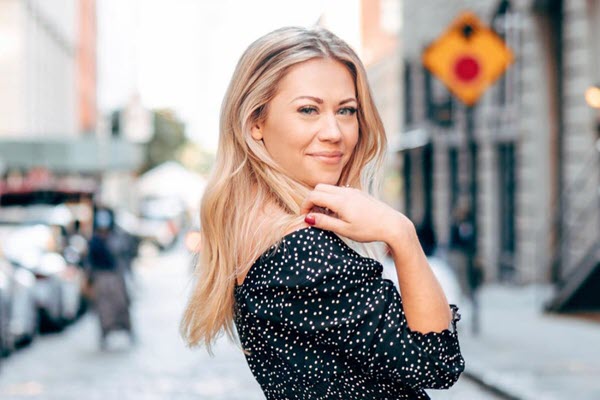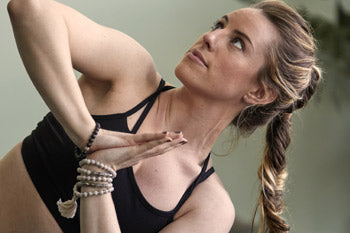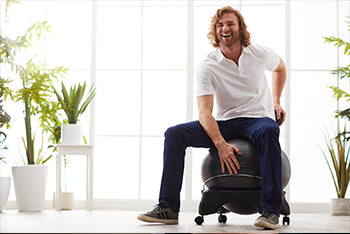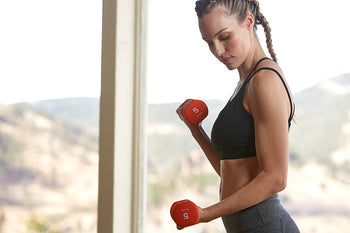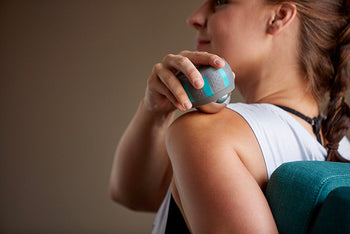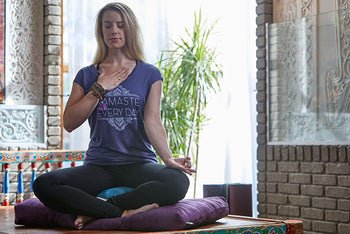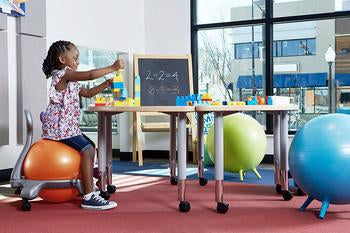9 Ways to get a Better Night's Sleep
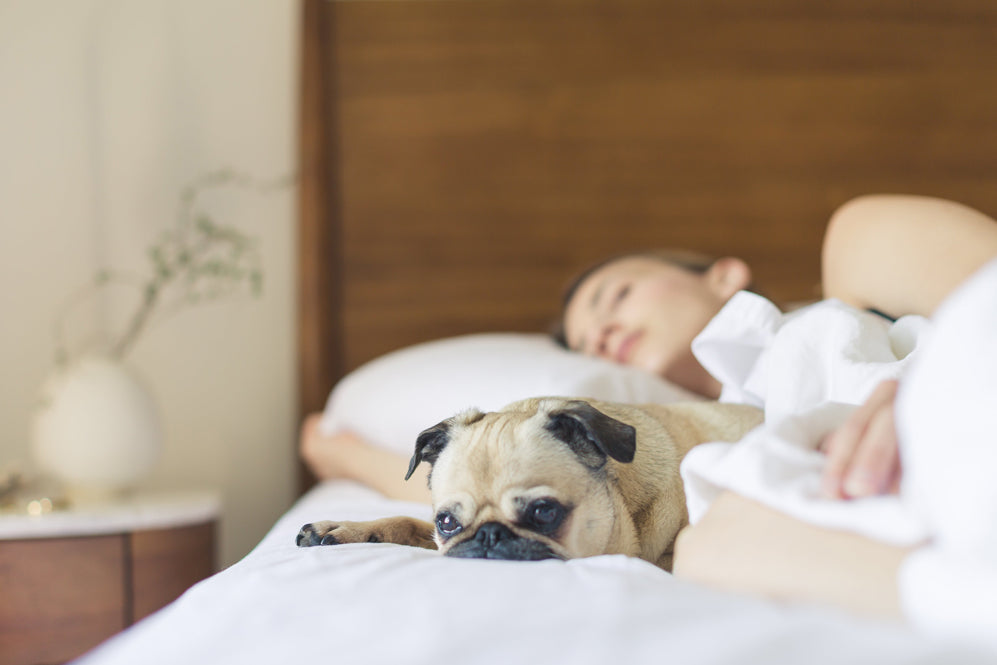
by: Destiny Hagest
A good night’s rest is not only essential for living a healthy, productive life, but it’s also an important factor in warding off chronic diseases like diabetes and heart disease. Many of us, however, struggle to get the quality sleep we need in order to wake up feeling refreshed and ready to take on the day.
Whether you have trouble falling asleep or staying asleep, there are probably a few things you could change in your daily routine to help catch a few more Zzz’s at night. Truth is, you might be sabotaging your sleep without even knowing it.
Here are 9 easy ways to ensure you’re getting the best sleep possible when it’s finally time to turn down the lights.
1. Active Sitting
For many of us, sitting for long hours at a desk or computer is simply part of the job. However, it’s no secret that prolonged sitting isn’t great for your health.
If you do spend a significant amount of time sitting down each day, consider switching things up with a balance ball chair or this BetterBack Posture Belt. Active Sitting requires constant engagement of your core, which over time will strengthen your abdominal and back muscles. Other benefits include a higher calorie burn than regular sitting, better posture, and better balance.
So how does Active Sitting affect our sleep? Simple. A strengthened core and better posture can significantly reduce back pain, a major deterrent for many people trying to get a good night’s sleep. Back pain often makes lying down uncomfortable, leading to hours of tossing and turning before finally being able to drift off into dreamland.
As it turns out, your mattress may not be the culprit of your back pain after all.
2. Block the Blue Light
The average American spends upwards of 10 hours a day devoted to screen time. Ten hours. If you aren’t glued to your computer for work, you’re likely checking your smartphone, tablet, or perhaps scrolling your way through social channels while simultaneously eating your lunch.
Not surprisingly, all that screen time can have a negative effect on your health and your sleep, too. The electronic devices we spend so many hours a day glued to emit blue light, which blocks the production of melatonin, our body’s sleep hormone.
The good news is that you can combat the negative effects of blue light exposure by wearing computer glasses while you work or scroll through your phone. Because let’s face it, our screens aren’t going anywhere anytime soon.
3. Sweat it Out
Another proven way to sleep like a baby at night? Move your body.
That’s right, just 20 minutes of moderate physical activity will help you achieve better quality sleep and keep you feeling more alert and focused throughout the day.
Regular physical activity can also help to reduce stress and anxiety, both common inhibitors to achieving restful sleep. Studies have shown that logging a sweat session consistently helped adults with insomnia not only fall asleep faster, but also sleep longer and bank a better quality of sleep overall. So next time you’re looking to feel more rested, try hitting up a yoga class or going for a jog in your neighborhood.
4. Meditate
Practicing mindfulness is another proven technique to help you snooze a little more soundly. Meditation involves quieting the mind, focusing on the breath and coming back to the present moment as your mind wanders.
While it may sound simple, meditation is no easy feat—that’s why it’s called a practice! By allowing time and space to unwind and drown out distractions, you are helping to set the stage for a peaceful night’s rest. The ability to let go of the day’s stress and tomorrow’s to-do list means less racing thoughts once your head hits the pillow.
5. Do a Brain Dump
If you aren’t the meditating type, at the very least try and do a brain dump before bed. A brain dump is essentially just as it sounds—dump all the things still lingering in your mind onto a piece of paper and let it go. At least for the night, that is.
Nothing fancy required for this one—simply grab a pen and a piece of paper and scribble down everything that has the potential to keep you up at night. Your grocery list, that follow-up email you never sent, and yes, the parking ticket that you still need to pay.
Ahh, doesn’t that feel better already?
6. Try Aromatherapy
There are so many health benefits to using essential oils, but when it comes to promoting better sleep, lavender reigns supreme. Studies have shown that lavender oil aromatherapy promotes relaxation by calming the nervous system through lowering blood pressure, heart rate, and even changing the temperature of your skin.
Lavender is also touted as an excellent natural remedy in treating mild insomnia and improving overall sleep quality. What a perfect excuse to get that diffuser you’ve been lusting after!
7. Limit Alcohol
While that nightly glass of wine may help you feel sleepier in the short term, it’s probably contributing to poorer sleep quality overall.
Alcohol tends to trigger a sleep-inducing chemical called adenosine immediately after consuming, which is why we feel drowsy when we drink. However, this magic sleep chemical vanishes just about as quickly as it appears, which leads you to wake up inexplicably at 3 a.m. after a night of drinking.
Alcohol also blocks REM sleep, which is the most restorative, so you’re more likely to feel groggy even after several hours of snoozing. And let’s not forget that alcohol is also a diuretic, which means it could cause you to wake for a midnight bathroom trip that you wouldn’t normally take.
8. White Noise
If you often find yourself startled awake in the middle of the night to the sound of your neighbor’s dog barking or the cat rummaging through your closet again, it’s probably time to start drowning out the noise.
A sound machine works by blending external sounds into the overall background noise, so you’re less likely to hear every little thing that goes bump in the night. The constant hum of white noise actually has a way of tricking your brain into paying less attention to all the other sounds, so you have a better chance of staying asleep even when when the cat is making a ruckus again.
9. Cut Back on Caffeine
That late-afternoon coffee habit of yours? It might be time to ditch it.
Unfortunately, when it’s time to turn in for the night, there’s a good chance you’re still wired from that cuppa' joe you slugged a few hours ago. The average half-life of caffeine in humans is 4-6 hours, so depending on what time you drink your last cup, there’s still quite a lot of caffeine left in your system to metabolize when it’s time for bed.
A better option when you’re hitting that late-afternoon wall? Take a short walk to get the blood flowing again. Remember that a welcomed side effect of exercise is feeling more alert and focused afterwards, so get to it!
Destiny is a freelance writer working with J+S Vision, a bombdotcom computer glasses company keepin' eyes fresh and sleep within reach. When she's not writing, you can catch her finger painting with her toddler, or eating entirely too much ice cream.
Also in Blog
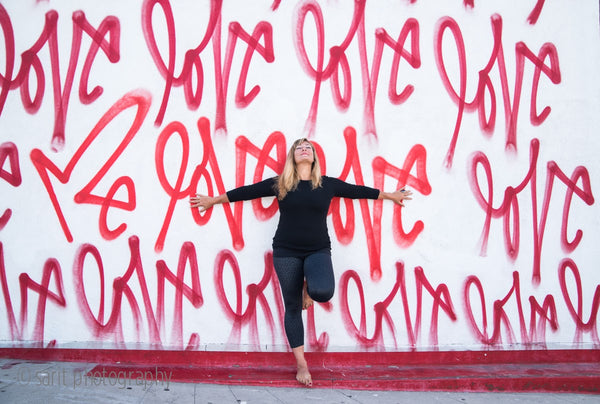
Body Peace & Personal Empowerment
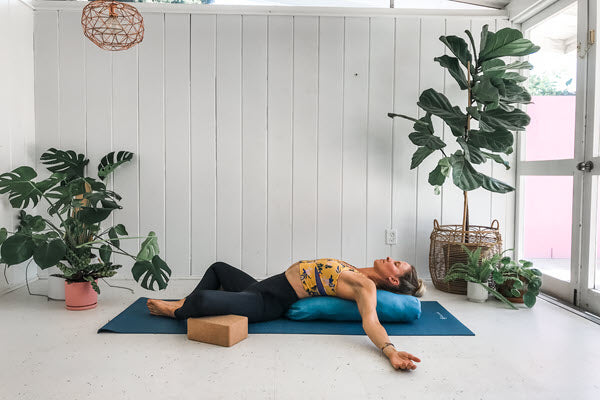
Yoga for Swimmers: Poses for Strength and Mobility
